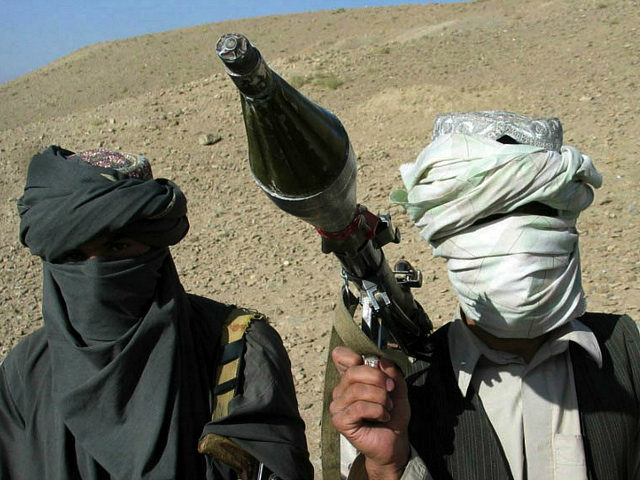The top commander of U.S. and NATO troops in Afghanistan along with Afghan officials have expressed concerns about Russian support to Taliban terrorists fighting American-backed troops.
Russia has denied allegations that it is lending support to the terrorist group.
However, Reuters recently learned from unnamed Taliban officials that the jihadist group has maintained “significant contacts” with Russia since at least 2007.
“We had a common enemy,” one senior Taliban official told Reuters. “We needed support to get rid of the United States and its allies in Afghanistan and Russia wanted all foreign troops to leave Afghanistan as quickly as possible.”
While Taliban officials claim Moscow’s aid does not extend beyond “moral and political support,” Afghan intelligence and defense officials are reportedly worried “about more direct support including weapons or funding.”
Gen. John Nicholson, the top commander of the U.S.-led coalition in Afghanistan, told Pentagon reporters last week that the United States and Afghanistan are concerned about the “malign influence of external actors” such as “Pakistan, Russia, and Iran.”
Both Iran and Pakistan have also been accused of backing the Taliban, according to the general.
Nicholson recently explained:
Russia has overtly lent legitimacy to the Taliban. And their narrative goes something like this: that the Taliban are the ones fighting Islamic State [ISIS/ISIL], not the [U.S.-backed] Afghan government… this public legitimacy that Russia lends to the Taliban is not based on fact, but it is used as a way to essentially undermine the Afghan government and the NATO effort and bolster the belligerents.
Meanwhile, Taliban officials have dismissed the notion that their association with Russia is linked to their rivalry with the ISIS branch in Afghanistan, known as the Khorasan province (IS-KP/ISIL-K).
The Taliban has been combating ISIL-K for territory and influence since the group established itself in the country back in January 2015.
“In early 2008, when Russia began supporting us, ISIS didn’t exist anywhere in the world,” the senior Taliban official told Reuters. “Their sole purpose was to strengthen us against the U.S. and its allies.”
Those comments were echoed by Taliban spokesman Zabihullah Mujahid, who reportedly said, “ISIS is not an issue.”
Citing Kremlin officials, Russian media has reported that Moscow is cooperating with the Taliban to combat ISIS.
On Thursday, Alexander Mantytskiy, Moscow’s ambassador to Afghanistan, confirmed that the Kremlin is affiliated with the Taliban, but added that the relationship is focused on ensuring the safety of Russian citizens and encouraging peace talks between the terrorist group and the Afghan government.
“We have ties with the Taliban to ensure the security of our political offices, consulates and the security of Central Asia,” he said, adding that peace between Afghanistan and the jihadi group can only be achieved by talking to all players, including the Taliban.
“They are trying to put the blame for their failures on our shoulders,” Mantytskiy told Reuters, referring to U.S.-backed efforts in Afghanistan.
The United States — along with China, Pakistan, and Afghanistan — have formed the Quadrilateral Coordination Group (QCG) to try to bring the Taliban to the peace negotiation table with the Afghan government, but the effort has failed.
According to a U.S. watchdog group appointed by Congress, security conditions in Afghanistan are deteriorating as the Taliban continues to seize territory.
The Obama administration has admitted that the Afghanistan war is “tipping in the Taliban’s favor,” according to The Washington Post.
Reuters learned from Taliban and Afghan government sources that the terrorist group has “held several meetings with Russian officials” in recent months.
President-elect Donald Trump, who will be inaugurated in January, has signaled a desire to improve the strained relationship between Russia and the United States.

COMMENTS
Please let us know if you're having issues with commenting.